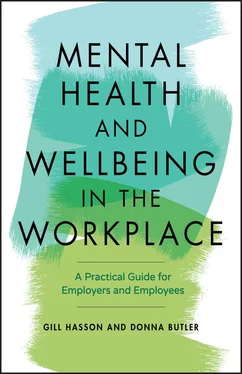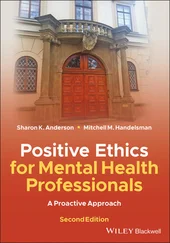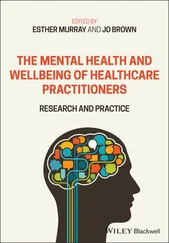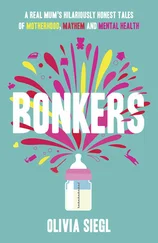Inability to rest or relax
Impulsive behaviour
Panic attacks.
Life Changes and the Impact on Mental Health and Wellbeing
Our mental health and wellbeing can change not just from day to day, month to month, and year to year, but at key stages and changes in our lives. Childhood, adolescence, going into further or higher education, starting work, being in a relationship, becoming a parent, midlife, retirement etc. all have particular relevance and can impact on our wellbeing and mental health. Here we describe how some key life stages can adversely impact on mental health and we list common emotional and behavioural responses.
Menstruation and Mental Health
With menstruation comes hormonal changes that can cause emotional and physical symptoms each month. For some women these symptoms are mild and for others, distressing and difficult to manage.
Emotional responses:
Mood swings, irritability, anxiety, frustration, anger
Depression, sadness, crying
Low confidence and self-esteem.
How you might behave:
Inability to focus and concentrate or achieve as much as usual
Withdrawing from groups and social activities
Being irrational and impulsive
Abandoning normal physical activity
Greater inclination to conflict with others; easily offended.
‘Periods can be a problem for female tennis players. I often lose if I'm on my period. I suffer when I have it. I always have one bad day when I'm tired, I have no energy and all I want is sugar. Playing at Wimbledon, with its all-white dress code, makes things even more difficult. You're in short skirts and tiny shorts. It's the worst thing – and so distracting.’
Heather Watson. Tennis player
Menopause and Mental Health
When a woman experiences menopause, her ovaries stop producing the hormones – oestrogen and progesterone – that contribute to the reproductive system's normal cycle. This can result in distressing and uncomfortable physical, psychological, and emotional symptoms. (Some individuals who have transitioned from female to male may still have their ovaries, and so may also experience menopausal symptoms.)
Some women see menopause as a positive experience, no longer having to be concerned about periods or pregnancy, and see middle age as a time to think of themselves rather than dependents. But for others, menopause can be felt as a loss; a woman may feel that a part of their life is over; that she doesn't compare so well with younger family members and colleagues.
Emotional responses:
Mood swings – anger, sadness, irritability
Anxiety, depression
Low self-esteem/confidence
Feelings of hopelessness
Nervousness
Panic/feeling trapped
Loss of identity – ‘I don't know who I am any more’
Suicidal thoughts/feelings
How you might behave:
Inability to concentrate at work
Feeling confused and unable to prioritize
Lack of interest in usual social activities
Being argumentative and irritable, less patient with self and others
Memory lapses in conversation with others
Eating more – comfort eating
Male Midlife and Mental Health
People joke about the male ‘mid-life crisis’ and of men they know who have left their partners for someone much younger than themselves, or bought themselves a motorbike or a sports car. For some men, middle age makes them acutely aware that part of their life is over; they may feel they don't compare so well with younger family members and colleagues. They may either attempt to regain their youth or sink into a depression.
Although, as with any life stage, there are positive aspects to middle age, men too struggle, just as women do, with changes and challenges in life; mental health statistics and suicide rates for men certainly reflect this. (And some individuals who have transitioned from male to female may still experience difficulties specific to their gender identity, or original birth identity.)
You spend the first 20 years of your life running, running, running. You reach a point where you question if you can keep running like this for another 20 years.
Paolo Gallo
Emotional responses:
Depression and anxiety
Negativity, pessimism, and hopelessness
Irritability
Sadness for life that has passed
A sense of needing to cram more into life – time is running out
Suicidal thoughts/feelings.
How you might behave:
Becoming withdrawn from friends and family
May want to leave everything – partner, job, family, country, without thinking through the consequences
Disengagement from work
Spending more time at work as a displaced behaviour/anxiously avoiding relationships
Becoming more selfish and self-centred
Becoming more erratic and unable to think clearly
Increased alcohol or recreational drug intake
Eating more/less.
Grief is normal human response to loss. As well as being a response to the death or loss of loved ones – people or pets – grief can be a response to the loss of anyone or anything that we have had an emotional attachment to. Grief – profound feelings of loss – can be a response to a range of life changes – to divorce, family moving away, the loss of a job, or loss of a social group. It can also be a response to the diagnosis of a health problem, which results in a change in autonomy, identity, and/or physical appearance.
How we each manage and cope with grief is influenced by gender, cultural, philosophical, and spiritual beliefs. As well as being a cognitive and emotional response, grief is also experienced physically. Physical aches and pains such as chest pain or aching are common, as are feelings of being unable to breathe. Feelings can vary in intensity over time.
Emotional responses:
Deep despair that is triggered easily by reminders
Fearing harm to oneself and others, fearing a repeat of a similar loss
Fear of being left alone
Fear of breaking down, or losing control
Anxiety
Intense sadness, crying and sobbing
Anger
Mood swings
Helplessness/powerlessness
Shock, numbness, a sense of things being ‘unreal’ or ‘surreal’
Sense of longing
Feeling let down and abandoned
Guilt or shame
Spiritual beliefs may be challenged
Sense of ‘what's the point’, meaninglessness of life
Feeling suicidal, sometimes wanting to join the person who has died
Loss of perspective on other life issues.
How you might behave:
Withdrawing from close family and friends
Being aggressive to others/argumentative
Impulsiveness
Inability to talk about other subjects, constantly returning to issues of loss
Inability to concentrate on daily tasks
‘Ignoring grief' and ‘pushing through it’
Refusal to get up from bed
Impatience with self and others
Using or increase in use of alcohol, recreational drugs, cigarettes.
In terms of that horrific pain and inability to see that life will ever be the same again – yes grief does end. Do you get over grief? Absolutely you do – with love. Is there joy? Absolutely. But in those early days I never thought grief would end. In my case, it took quite a period of time. Those first 5 years. . .grief is very shocking. I miss her every single day.
Joely Richardson. Actor
Although Joely says, that for her, ‘grief does end’, many people experience the death of a loved one and subsequent feelings of grief differently. Their description is that they learn to live without their loved one and find a ‘new kind of normal’ in their lives. It has been described by some as a ‘slow healing quarry of grief’.
Читать дальше












